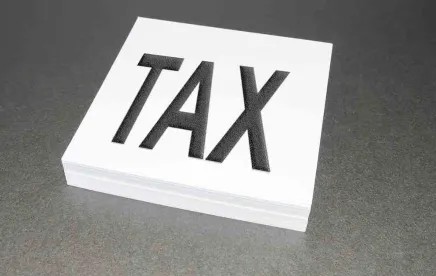Introduction
The Netherlands has a broad tax treaty network. However, a tax treaty between the Netherlands and the Republic of Chile was never signed – until now. On Jan. 25, 2021, the Netherlands and Chile signed a convention for the elimination of double taxation with respect to taxes on income, capital, and the prevention of tax evasion and avoidance (the Treaty). The Treaty contains clauses to prevent tax avoidance and the payment of double taxation.
Currently, there is no official date as to when the Treaty will enter into force, but it will be after parliamentary ratification and the exchange of ratification instruments between the contracting states.
This GT Alert summarizes the contents of the Treaty.
The Contents of the Treaty
The Treaty aims to prevent potential barriers (double taxation) that could impede economic activity between the Netherlands and Chile. It also aims to ensure legal certainty for taxpayers in both Treaty countries.
In numerous respects, the Treaty follows the current (2017 published) version of the OECD Model Tax Convention. At the same time, the Treaty contains several provisions from the 2017 UN Model Convention. As a result, relatively more taxing rights have been allocated to Chile than would have been the case if the Treaty were based entirely on the OECD Model Tax Convention.
Permanent Establishment
A permanent establishment generally is a fixed place of business that gives rise to a tax liability in a particular jurisdiction. In some cases, a permanent establishment is deemed to exist if certain criteria are met. Under the Treaty, a permanent establishment will be deemed present if an enterprise furnishes services in a contracting state through employees or other engaged personnel, if the activities continue for a period or periods aggregating more than 183 days within any 12-month period.
Furthermore, a permanent establishment will be deemed present when an installation, a drilling rig, or a vessel is used for the exploration of natural resources or exploration activities, and other activities related to the extraction or exploitation of natural resources in the other contracting state, if the activities continue or are carried on for a period or periods aggregating 30 days or more within any 12-month period.
Dividends, Interest, and Royalties
The withholding tax rates for dividends, certain types of interest, and certain types of royalties are moderated by South American standards (5% for dividends, 4% for banking interest and supplier credit, 2% for the use of equipment, and 10% for other royalties). The royalty definition in the Treaty follows that of the UN Model Convention and therefore includes fees for the use or right to use industrial, commercial, or scientific equipment.
Capital Gains
The source state has the right to tax on capital gains obtained from the sale of shares and similar rights. This provision follows the UN Model Convention to a certain extent, and the source state’s tax rate is a maximum of 16% of the capital gains obtained. Unlike the UN Model Convention, the Treaty does not require a minimum share ownership amount.
Arbitration and Exchange of Information
The Netherlands and Chile have made agreements about the mutual exchange of information and assistance in the collection of taxes. The Treaty also contains a provision on arbitration in the event that Chile and the Netherlands do not reach an agreement by mutual consultation on the position of a taxpayer who believes that the Treaty has not been correctly applied.
Anti-Abuse
The Treaty includes a comprehensive anti-abuse provision in line with the BEPS project that prevents the Treaty from being used to avoid taxation. This provision allows a country to deny Treaty benefits if a company funnels money through the Netherlands or Chile purely to avoid tax.
A resident of a contracting state will not be entitled to the benefits of the Treaty unless the resident is a qualified person as defined in the Treaty (Limitation on Benefits). Furthermore, the Treaty includes a general anti-abuse provision (Principal Purpose Test), which provides that a benefit under the Treaty shall not be granted in respect of an item of income if it is reasonable to conclude that obtaining that benefit was one of the principal purposes of any arrangement or transaction that resulted directly or indirectly in that benefit, unless it is established that granting that benefit in these circumstances would be in accordance with the objective and purpose of the relevant provisions of the Treaty.
Multilateral Instrument
The Treaty would not be a covered tax agreement for the Multilateral Instrument, because neither of the two contracting states has included the Treaty in its notification to the OECD.
Conclusion
The Treaty will enter into force when both contracting countries have ratified the Treaty in accordance with national constitutional procedures. Subsequently, the provisions of the Treaty will have effect on the first day of January in the calendar year following that in which the Treaty has entered into force.



 />i
/>i


